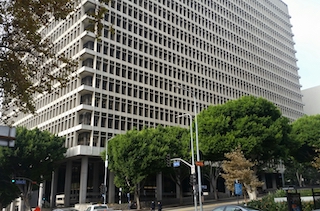When a person has more than three convictions for DUI for conduct that took place within the last ten years, that person faces charges for violating Vehicle Code § 23152 as a felony.
No injuries are involved in the fourth or higher incident and therefore a charge of violation of Vehicle Code § 23153 is not proper.
Brief Synopsis: If one receives a fourth DUI arrest within ten years of three other DUI arrests that led to DUI convictions (a “wet reckless” conviction counts), the prosecution may charge the fourth DUI as a felony, even if no one is injured. The case can also be charged as a misdemeanor, but this is rare.
It may come as a surprise that a fourth or subsequent DUI without injuries within ten years can be charged as a misdemeanor or a felony by the prosecution.
The requirements for a felony conviction under 23152(a) or 23152(b) are the same as a those required for a misdemeanor conviction under 23152(a) or (b), except the prosecution must also plead and prove three or more convictions for conduct within the last ten years, or a prior felony conviction for 23153(a) or (b) (DUI with injuries) with a date of occurrence that took place within the last ten years, or a prior felony conviction for gross vehicular manslaughter under Penal Code § 192(c)(1) with a date of occurrence within the last ten years.
Specifically, to be convicted of violating Vehicle Code § 23152(a), as either a misdemeanor or felony, the prosecution must prove beyond a reasonable doubt that one was operating a motor vehicle in a manner that was substantially impaired due to alcohol. This can be a difficult challenge for the prosecution because so many other plausible factors can cause one’s driving to be impaired, so we find it not uncommon that if a prosecutor must go to trial on only a 23152(a) count, the defense has a legitimate chance of winning.
 Clara Shortridge Foltz Criminal Court Building LA
Clara Shortridge Foltz Criminal Court Building LA
To be convicted of violating Vehicle Code § 23152(b), as either a misdemeanor or a felony, the prosecution must prove beyond a reasonable doubt that defendant operated a motor vehicle while having a blood alcohol content of 0.08% or higher by weight. This is a much more difficult charge for a defendant to fight because jurors inherently trust machines and laboratory workers in clean white coats testing blood samples far from the arrest location.
Moreover, jurors are often skeptical of expert witnesses brought in by the defense to explain how a defendant’s diabetes, blood thinner medication (heparin or warfarin, also called Coumadin), high protein diet, or poor dental hygiene (or any other of the common defenses, including the auto-brewery defense) explain a blood alcohol content of 0.08% or higher, but that such a measurement is unreliable or attributable to other factors.
The punishment is, as one might expect, far harsher for a fourth or subsequent DUI conviction under 23152 within ten years. The judge can sentence the person to up to three years in state prison (to be served in county jail under AB 109 and to be served up to a maximum of 50% with good-time, work-time credits under Penal Code § 4019).
Alternatively, the judge must sentence the person for a minimum of 180 days up to a maximum of 364 days under with a fine of $390 to $2,000, plus penalties and assessments. This alternative ground is more common, we find, and the judge can order that the 180 days be deemed served if the defendant takes part in a residential alcohol treatment program, so the person may avoid county jail (and get desperately needed treatment). The judge will then place the individual on formal probation for a period of one to three years.
Upon receiving notice of a conviction for 23152(a) or (b) as a felony, the DMV will revoke (not just suspend) the person’s driving privileges for four years under Vehicle Code §§ 13352(a)(9) and 23550. The DMV also has the option of suspending the person’s driving privilege for life, which implies a restricted license may be possible to obtain with installation of an ignition interlock device.
The conviction also triggers the court to make a finding that the person is a habitual traffic offender for three years.
Perhaps the most damaging effect of being convicted of a felony is the stigma of being a convicted felon, which will result in a lifetime ban on owning or possessing a firearm under federal law (California law imposes a ten-year ban), housing and employment discrimination and difficulty obtaining loans. If the person is not a U.S. citizen, such a conviction will result in deportation, exclusion from admission and denial of naturalization.
For more information about felony DUI, please click on the following articles:
 Clara Shortridge Foltz Criminal Court Building LA
Clara Shortridge Foltz Criminal Court Building LA